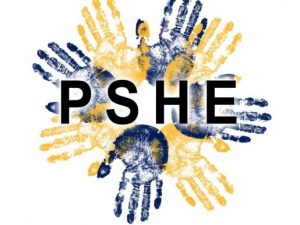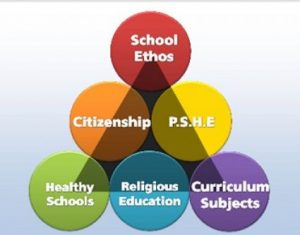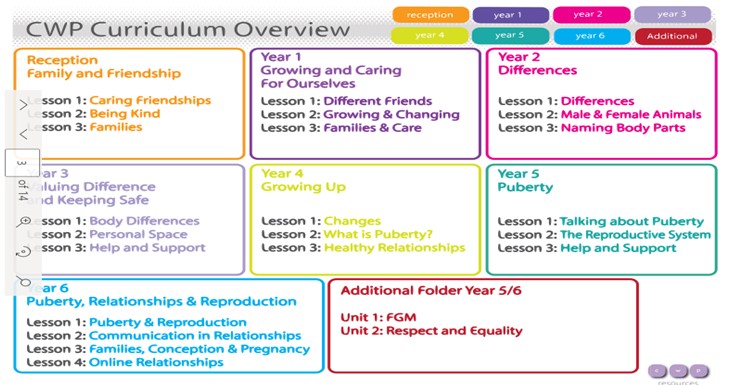PSHE

At Pear Tree Mead we believe that PSHE is a fundamental part in the education of children. We work hard to provide all of our children with teaching and learning that supports all areas of their well-being and growth. This is heavily backed by our motto ‘Pupils that Matter’.
PTM has a vision statement that states – ‘At Pear Tree Mead we help all the children to grow so that they can reach the branches to their future’.
Intent:
Personal, Social and Health Education (PSHE) helps to give pupils the knowledge, skills and understanding they need to lead confident, healthy, independent lives and to become informed, active, responsible citizens. Pupils are encouraged to take part in a wide range of activities and experiences across and beyond the curriculum, contributing fully to the life of their school and communities.
How is the subject ‘implemented’ and taught?
The school follows an individualised programme of study which can be seen below. These are the explicit objectives that are covered each half term. These are linked to school wide topics that allow the children to relate to their own lives and experiences. Every phase in the school teaches the same unit at the same time and the objectives show progression for each key stage. This approach is to support children in retaining this learning in their long term memory.
We allow teaching to be adapted and taught in a variety of creative ways to suit the needs of the children. The sessions are linked heavily to Speak and Listening techniques to allow children to strengthen their verbal reasoning skills and confidence in delivering their ideas and thoughts.

Autumn 1 – Safe at School covers an all about me unit where we as a school outline all of our expectations within the setting. We allow teaching and role play to happen in order for children to work through scenarios and situations that they may come across in the coming term. We also begin the children’s record of achievement folders that will be completed throughout their journey at PTM. This is linked with the behaviour and PTM attitudes that are expected within the school. We recap our growth mindset approach as well as the zones of regulation teaching for the children.
Autumn 2 – Safe behaviours incorporates our Anti bullying learning as well as understanding Consent. We teach our children about consent and what behaviours are acceptable and unacceptable and how they can overcome any undesirable forms of touch. This links very closely to the school stance on bullying and unkind behaviours. We teach the children to be proactive and confident in combatting bullying as well as how to support others. Each year we link these to local and national agendas depending on the community and school need. We also link our online safety unit ‘Online bullying’ in this half term.
Spring 1 – Safe Mind allows the school to explicitly tackle mental health awareness and what that might look like for our children and how this is supported within our community. Like the previous unit this can be flexible to the local or national messages. We will continue to address the main themes from the TPP program as well as working with the school mental health champions. Online safety day is also addressed with links to the national theme.
Spring 2 – Safe Relationships is based around our RSE curriculum. We teach our RSE curriculum over a week, therefore completing the progressive themes as a whole school. This week also allows us to cover some safeguarding themes with the children like recapping Consent and Boundaries as well as Relationships.
Summer 1 – Safer Me! helps our children explicitly learn how to stay safe on the roads in and around our community. We allow children first hand experiences to solidify theory. We also cover personal health and hygiene providing children with knowledge and support (if needed). We also address healthy lifestyles and the importance of sleep and body care.
Summer 2 – Safe in the community teaches children how to support local issues and be involved in making a positive change. We look at how to stay safe in the community and how to manage situations when alone. We have an annual assembly to address safety over the summer holidays and good decision making.
How is the subject assessed?
All children have a record of achievement where we have annual tasks for the children to complete. These show the progression on work and achievements over the school year, really mapping out the journey the children have taken.
In PSHE there are two broad areas for assessment:
· Children’s knowledge and understanding, for example, information on health, understanding of rules, understanding of health and safety procedures, and the meaning of ideas including law and order.
· How well children can use their knowledge and understanding in developing skills and attitudes, for example through participating in discussions, group tasks and activities, managing conflict, making decisions and promoting positive relationships.
Clearly defined learning outcomes based on the scheme of work assist the assessment process.
At Pear Tree Mead assessment in PSHE include the following recognitions of children’s achievement:
· head teachers awards leading to a post card home,
· sharing of work and success assembly,
· celebration assembly,
· positive note of the day leading to a phone call home then an invitation to hot chocolate Monday
· stickers and individual reward charts.
· Positive praise and recognition

How do we overcome learning barriers in this subject?
Quality first teaching is essential in overcoming any barriers children may have in their learning. Good teaching relies on using appropriate methods for the aim of the lesson or unit of work, as well as for the children.
· All teachers are encouraged to develop a repertoire of flexible, active learning methods.
· Effective starting and ending strategies.
· High order questioning skills.
· Climate building and ground rules.
· Working together.
· Values clarification.
· Information gathering and sharing.
· Consensus building.
· Problem solving.
· Understanding another point of view.
· Working with feelings and imagination.
· Reflection, review and evaluation.
· Circle Time.
· Drama and role-play.

SMSC – Where is SMSC found in our school?
By bringing all the PTM learning areas together, a deep understanding of spiritual, moral, social and cultural issues can be developed in our children which will help them to grow into respectful, tolerant and responsible members of our community.
Spiritual
Pupils’ spiritual development is shown by their:
· beliefs, religious or otherwise, which inform their perspective on life and their interest in and respect for different people’s feelings and values
· sense of enjoyment and fascination in learning about themselves, others and the world around them, including the intangible
· use of imagination and creativity in their learning and showing a willingness to reflect on their experiences.
Moral
Pupils’ moral development is shown by their:
· ability to recognise the difference between right and wrong and their readiness to apply this understanding in their own lives
· understanding of the consequences of their actions
· interest in investigating, and offering reasoned views about, moral and ethical issues.
Social
Pupils’ social development is shown by their:
· use of a range of social skills in different contexts, including working and socialising with pupils from different religious, ethnic and socio-economic backgrounds
· willingness to participate in a variety of social settings, cooperating well with others and being able to resolve conflicts effectively
· interest in, and understanding of, the way communities and societies function at a variety of levels.
Cultural
Pupils’ cultural development is shown by their:
· understanding and appreciation of the wide range of cultural influences that have shaped their own heritage
· willingness to participate in, and respond to, for example, artistic, musical, sporting, mathematical, technological, scientific and cultural opportunities
· interest in exploring, understanding of, and respect for cultural diversity and the extent to which they understand, accept, respect and celebrate diversity, as shown by their attitudes towards different religious, ethnic and socio-economic groups in the local, national and global communities.

Relationship and Sex Education (RSE)
RSE is taught throughout the school using CWP resources. The scheme allows teachers to be confident in their approach allowing for a flexible pedagogy.
Parents are able to view the materials for RSE and discuss any areas of this with the PSHE lead. If parents would like to discuss further or withdraw they can do this in writing, for the attention of
Rebecca Arnould the co-ordinator. Parents are only able to withdraw their children from the Sex strands of the curriculum and not the Relationship teaching.


